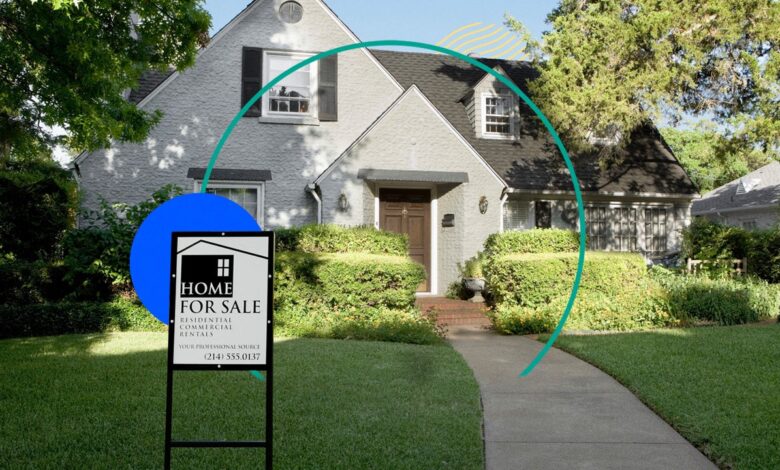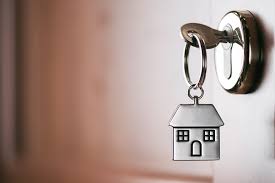
The dream of owning a home is shared by many, but the financial hurdles often seem insurmountable. Fortunately, there are alternative paths to homeownership that can offer potential buyers lower prices, including bank-owned properties and government-backed options. In this comprehensive guide, we’ll explore these routes, highlight the benefits and risks, and walk you through the process of purchasing bank-owned homes and government properties.
Table of Contents
- Introduction to Bank-Owned and Government Properties
- Benefits of Buying Bank-Owned and Government Homes
- Risks and Considerations When Purchasing
- Step-by-Step Guide to Buying Bank-Owned Properties
- Step-by-Step Guide to Buying Government-Owned Properties
- Financing Options for Bank-Owned and Government Properties
- Frequently Asked Questions (FAQ)
- Summary and advice.

1. Introduction to Bank-Owned and Government Properties
When a homeowner fails to make mortgage payments, the lender may foreclose on the property. Foreclosures lead to homes being repossessed by the bank (also known as Real Estate Owned, or REO properties) or government agencies such as the Federal Housing Administration (FHA), Department of Veterans Affairs (VA), or Housing and Urban Development (HUD). These foreclosed properties are then sold at discounted prices to recoup the lender’s or government’s loss.
Whether you’re an investor looking for a good deal or a first-time homebuyer aiming to find an affordable home, both bank-owned and government-owned properties offer unique opportunities. However, they also come with challenges. Understanding the buying process and knowing how to navigate these markets is crucial to ensuring you get the best deal without unnecessary risk.
Find best Real Estate here
2. Benefits of Buying Bank-Owned and Government Homes
Buying a home or property from a bank or government auction has its advantages, especially for buyers looking for a bargain. Here are some of the major benefits:
a. Lower Prices
Bank-owned and government-owned properties are often priced below market value because the lenders or government agencies want to quickly recoup their losses. This provides buyers an opportunity to get more property for their money.
b. Motivated Sellers
Since banks and government entities don’t want to hold onto properties, they are typically more motivated to sell quickly. This often makes the negotiation process smoother, as the seller may be more flexible on terms or price.
c. Less Competition
Compared to traditional real estate transactions, these properties can sometimes have less competition because many buyers are intimidated by the prospect of purchasing a foreclosed home. This opens the door to savvy buyers who do their homework.
d. Opportunity for Profit
For real estate investors, buying a foreclosed property offers the potential for a higher return on investment (ROI). Renovating and flipping these homes can yield substantial profits.
e. Available Listings
There are numerous foreclosed properties available across the U.S., meaning there’s a diverse range of homes to choose from in nearly every city and state.
3. Risks and Considerations When Purchasing
Despite the advantages, purchasing a bank-owned or government-owned property also comes with some risks and challenges that every buyer must understand:
a. Property Condition
Foreclosed homes may not have been well-maintained by the previous owner. In some cases, homeowners facing foreclosure might neglect or even damage the property, leaving the new buyer to shoulder the cost of repairs.
b. Limited Disclosure
Banks and government entities often sell properties “as-is,” meaning they provide little information about the condition of the home. Buyers may have limited knowledge of existing issues with plumbing, electrical systems, or structural integrity before making an offer.
c. Longer Process
The process of buying a foreclosed home can sometimes take longer than a traditional home purchase, especially when dealing with government entities. Buyers must be patient as the transaction goes through various legal channels.
d. Competition from Investors
In some markets, foreclosed properties attract the attention of investors, which can drive up prices and make it harder for individual buyers to secure a deal.
e. Hidden Costs
Buyers should be prepared for potential hidden costs such as repairs, unpaid property taxes, or other liens on the property. These can add up and reduce the savings from buying a foreclosed home.
Find your home with best deals here
4. Step-by-Step Guide to Buying Bank-Owned Properties
Step 1: Research Available Listings Start by searching for bank-owned properties in your desired location. Websites like Zillow, Realtor.com, and specialized foreclosure platforms such as Foreclosure.com or RealtyTrac provide listings of REO homes.
Step 2: Get Pre-Approved for Financing Before approaching banks or lenders, get pre-approved for a mortgage. Having pre-approval shows the seller (in this case, the bank) that you’re a serious buyer and financially capable of purchasing the property.
Step 3: Hire a Real Estate Agent Work with a real estate agent who specializes in foreclosed properties. They can help you navigate the unique challenges of buying REO properties, negotiate with banks, and guide you through the paperwork.
Step 4: Inspect the Property Although the property is sold “as-is,” it’s crucial to hire a professional home inspector to assess the condition of the home. This will help you estimate repair costs and determine whether the property is worth the investment.
Step 5: Make an Offer Once you’ve found the right property, submit an offer. Depending on the condition of the home and the market, you may have room to negotiate. Banks are motivated to sell quickly, but they will still try to get a fair price.
Step 6: Close the Deal After the offer is accepted, you’ll go through the closing process, which involves title searches, appraisals, and signing final paperwork. Once complete, the home is yours.
5. Step-by-Step Guide to Buying Government-Owned Properties
Step 1: Search for Government Listings Federal government agencies, such as HUD, USDA, and VA, list foreclosed homes for sale on their websites. You can also find these listings on platforms like HudHomeStore.com, HomePath.com (Fannie Mae), and HomeSteps.com (Freddie Mac).
Step 2: Secure Financing Getting pre-approved for a mortgage is critical. Some government agencies, such as FHA or VA, offer special financing options for qualified buyers, making it easier to obtain a loan.
Step 3: Work with a Registered Agent To purchase a government-owned property, you’ll need to work with a real estate agent registered with the government program. They’ll help you navigate the process and submit offers on your behalf.
Step 4: Attend Property Inspections Most government-owned properties are also sold “as-is.” It’s essential to hire a home inspector to evaluate the property’s condition and identify potential repairs or issues.
Step 5: Make an Offer Your real estate agent will help you submit an offer through the government program’s specific process. In some cases, you may be competing with other buyers, so offer your best price upfront.
Step 6: Complete the Paperwork and Closing Once your offer is accepted, you’ll proceed with the closing process. Government-owned homes often require extra paperwork, but once complete, the property is transferred to you.
6. Financing Options for Bank-Owned and Government Properties
Financing a bank-owned or government-owned property can be different from financing a traditional home. Here are the key options:
a. Conventional Loans
Many buyers use conventional loans from private lenders or banks to finance the purchase. For bank-owned properties, this process is often straightforward if the home is in livable condition.
b. FHA Loans
FHA loans are backed by the Federal Housing Administration and offer lower down payments and easier qualification criteria. These are particularly useful when purchasing a HUD home or other government-owned properties.
c. VA Loans
If you’re a military veteran, you may qualify for a VA loan, which offers no down payment and favorable terms for buying a home.
d. Fannie Mae HomePath and Freddie Mac HomeSteps
These programs are designed specifically for buyers looking to purchase foreclosed properties owned by Fannie Mae or Freddie Mac. They offer competitive financing and sometimes require as little as 3% down.
e. 203(k) Rehab Loans
For homes that need significant repairs, FHA’s 203(k) loan allows you to borrow money for the purchase and the repairs in one mortgage. This is especially useful for fixer-uppers in foreclosure.
7. Frequently Asked Questions (FAQ)
Q: What is the difference between a bank-owned home and a government-owned home? A: Bank-owned homes are properties that have gone through foreclosure and are now owned by the bank. Government-owned homes, on the other hand, are properties that were insured by federal agencies and went into foreclosure, making them property of the government.
Q: Are foreclosed homes always cheaper than market value? A: While foreclosed homes can be cheaper than traditional listings, the discount varies depending on the location, condition, and demand. Some foreclosed homes are deeply discounted, while others are priced closer to market value.
Q: Can I get a home loan for a foreclosed property? A: Yes, you can finance a foreclosed property with various loan options such as conventional loans, FHA loans, VA loans, and specialized programs like Fannie Mae’s HomePath or Freddie Mac’s HomeSteps.
Q: Are there special financing options for government-owned homes? A: Yes, FHA, VA, and USDA loans are often available for purchasing government-owned properties. Additionally, some programs offer reduced down payments or closing cost assistance.
Q: Can I inspect a bank-owned or government-owned property before buying? A: Yes, you should always inspect the property before purchasing. Although these homes are sold
For Great Deals for home and property click here

